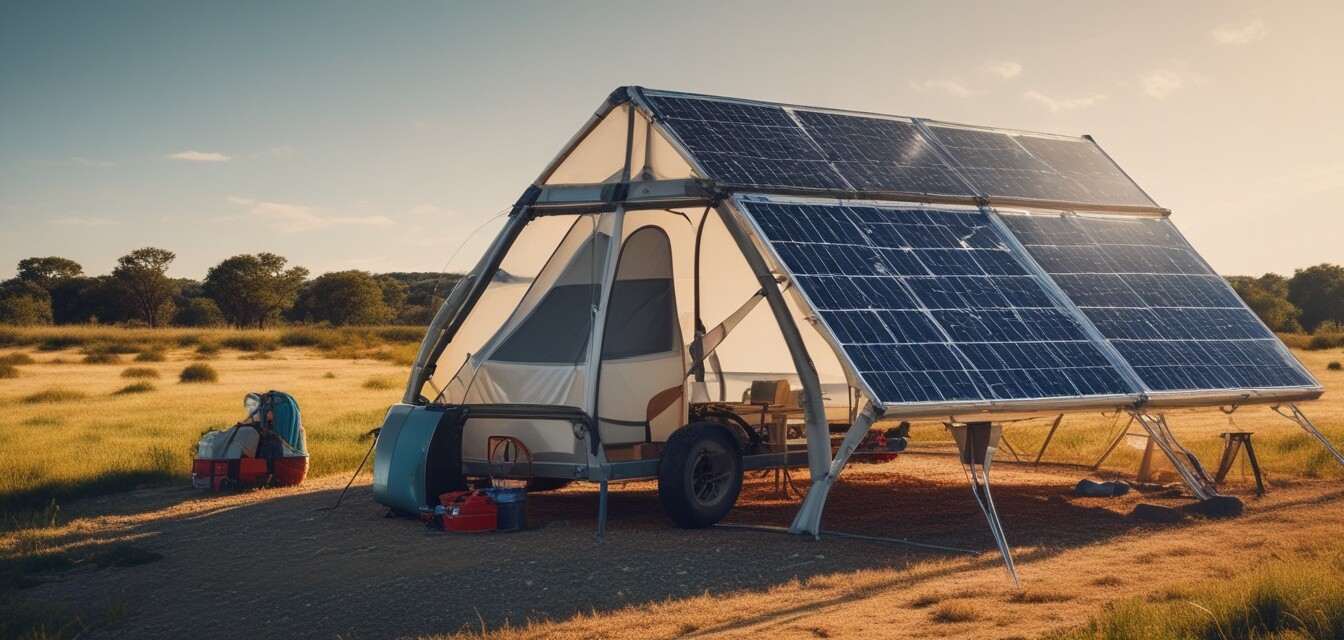
Portable Solar Power Stations: What You Need to Know
Key Takeaways
- Portable solar power stations are essential for camping, providing energy for devices.
- Key features include battery capacity, wattage output, portability, and charging options.
- Understanding your power needs is crucial for selecting the right station.
- Benefits include eco-friendliness, cost savings, and reliability.
- Research reputable products to ensure quality and performance.
As outdoor enthusiasts embrace renewable energy, portable solar power stations have become a popular choice for camping and outdoor activities. These versatile devices provide a reliable power source while minimizing environmental impact. Whether you need to charge your phone, run a small fridge, or power lights at your campsite, understanding how to select the right solar power station is essential. In this guide, we'll cover everything you need to know about portable solar power stations.
What is a portable solar power station?
A portable solar power station is a compact unit that harnesses sunlight to generate and store electricity. It typically comprises solar panels, a battery, and inverter technology, enabling you to use solar energy to charge devices or directly power appliances while camping.
Key features to consider
When shopping for a portable solar power station, consider the following key features:
| Feature | Description |
|---|---|
| Battery Capacity | Measured in watt-hours (Wh), indicating how much energy the station can store. |
| Wattage Output | The maximum power the station can deliver at any given time. |
| Portability | Weight and size impact ease of transport; lighter models are easier to carry. |
| Charging Options | Different methods to recharge (solar, AC, car), offering flexibility. |
Understanding your power needs
The first step in selecting the right portable solar power station is understanding your energy requirements. Consider the following:
- Identify the devices you will power (phones, laptops, fans, etc.).
- Check the wattage of each device to calculate total energy needs.
- Consider how long you need to run these devices.
The benefits of using portable solar power stations
Embracing portable solar power stations offers numerous benefits:
- Eco-friendly: Harnessing solar energy reduces carbon footprint.
- Cost-effective: Reduces dependency on paid electricity sources.
- Reliability: Access energy in remote locations without standard power grids.
Price range and budget considerations
Portable solar power stations can vary significantly in price based on capacity, brand, and features. Here’s a breakdown:
| Category | Price Range |
|---|---|
| Low Capacity (100-300 Wh) | $100 - $300 |
| Medium Capacity (400-800 Wh) | $300 - $600 |
| High Capacity (1000+ Wh) | $600 and above |
Where to buy portable solar power stations
You can find reputable portable solar power stations online or in camping stores. For more options, visit our dedicated solar panel section or check out our buying guides for tips and recommendations.
Tips for making the most of your solar power station
Beginners Section
- Keep your solar panels clean for optimal efficiency.
- Position panels at an angle towards the sun for maximum absorption.
- Avoid running too many devices simultaneously to prevent overload.
Conclusion
Exploring nature with a portable solar power station provides a reliable energy source while enhancing your outdoor experience. By understanding your needs and selecting the right features, along with benefits like eco-friendliness and cost savings, you can choose an effective solution for your camping adventures. For more advice on camping gear, browse our category on news and trends or explore solar cookers and grills as another effective outdoor energy solution.
Pros
- Environmentally friendly energy source
- Versatile for various outdoor activities
- Reduces reliance on traditional power sources
Cons
- High initial investment for quality units
- Performance can depend on weather conditions
- Bulky models can be difficult to transport